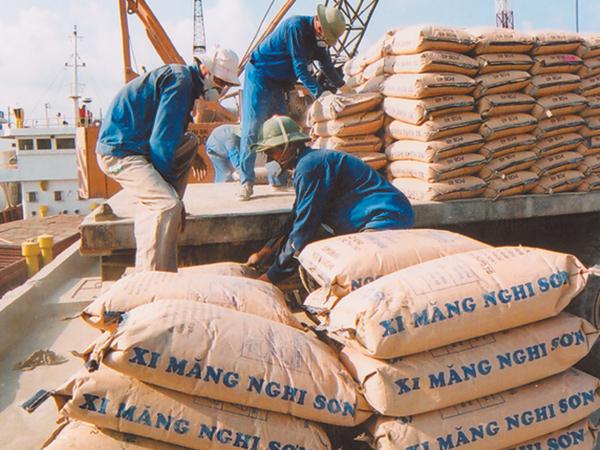Cement firms deep in the mire

One of the firms with hardships was Vicem Hoang Mai Cement JSC (HOM), a member of the state cement conglomerate Vicem.
Accordingly, in the first six months of 2013 HOM incurred VND12.9 billion ($619,000) losses albeit its net sales and services provision revenue approximated VND400 billion ($19 million), surging 2 per cent on-year.
“The company’s losses came from escalating input material costs in the second quarter, particularly the power cost added 11.4 per cent and inventory value jumped 28 per cent whereas cement consumption slid 12 per cent and clinker production volume went down 66 per cent,” said HOM spokesperson Tran Minh Son.
“HOM would be unlikely to reach its full-year profit target of VND95 billion ($4.5 million) this year,” HOM executives said.
Even with firms posting upbeat sale figures, their profits were modest.
For instance, Ha Tien 1 Cement JSC (HT1) is one of big cement producers and a favourite brand in southern areas.
Albeit HT1 raked in revenue of over VND3 trillion ($143.8 million) in the first six months of 2013 its profit, however, was a meager VND1.66 billion ($79,000).
According to a HT1 source, high financial expenses, particularly borrowing costs, had worsened the company’s business outcomes.
HT1 shouldered VND206 billion ($9.8 million) loan interest in 2013’s second quarter alone. At the end of the second quarter, the company needed to pay VND4.247 trillion ($202 million) short-term debts which reached maturity. It also owed to Vicem VND1.190 trillion ($56.6 million) at that time.
Chief executive officer of Vinacomin-Viet Bac Mining Industry Holding Corporation Limited (VVMI) Bui Tran Dong assumed cement firms would further grapple with hardships in the upcoming time due to big production and financial costs whereas they could not hike the price tags.
VNMI is a member of state mining group Vinacomin.
According to industry experts, the supply outrunning the demand in the cement sector would be a fact of life at least to the end of 2015. This year, the cement sector’ total production is forecast to reach 70 million tonnes, far surpassing the estimated demand of 56 million tonnes.
In this context, alongside boosting export the prime minister gave the nod to the Ministry of Construction’s proposal to remove nine low-capacity cement projects (below 2,500 tonnes of clinker production capacity per day) from the nation’s cement development master plan.
What the stars mean:
★ Poor ★ ★ Promising ★★★ Good ★★★★ Very good ★★★★★ Exceptional
Latest News
More News
- Opella and Long Chau join forces to enhance digestive and bone health (February 06, 2026 | 18:00)
- Vietnam-South Africa strategic partnership boosts business links (February 06, 2026 | 13:28)
- Sun PhuQuoc Airways secures AJW Group support for fleet operations (February 06, 2026 | 13:23)
- Pegasus Tech Ventures steps up Vietnam focus (February 05, 2026 | 17:25)
- The generics industry: unlocking new growth drivers (February 04, 2026 | 17:39)
- Vietnam ready to increase purchases of US goods (February 04, 2026 | 15:55)
- Steel industry faces challenges in 2026 (February 03, 2026 | 17:20)
- State corporations poised to drive 2026 growth (February 03, 2026 | 13:58)
- Why high-tech talent will define Vietnam’s growth (February 02, 2026 | 10:47)
- FMCG resilience amid varying storms (February 02, 2026 | 10:00)
















 Mobile Version
Mobile Version